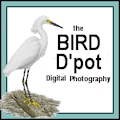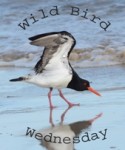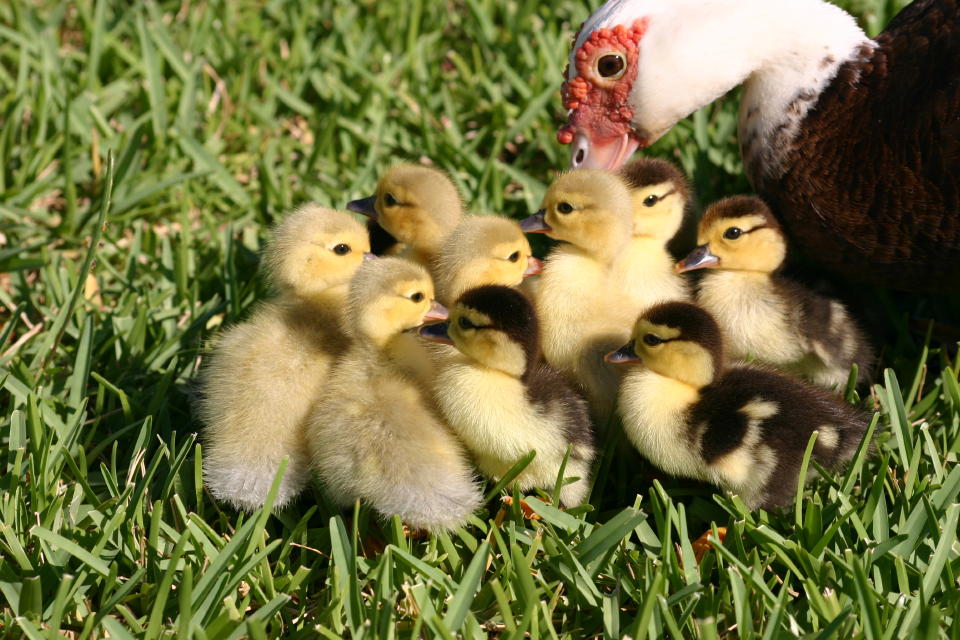
We commented earlier on the lack of Muscovy ducklings on our lake this spring as compared to the three past years we have lived in Florida. Whatever the cause, it appeared to be a local aberration, as the ducks seemed to be reproducing normally on other lakes in our area. The local delay in nesting success may have been related to the social disruption that attended the death of El Presidente, the mean old drake who had ruled over our lakeside back yard for at least two years. Yesterday, the hen that had been incubating a dozen eggs under our cocoplum emerged to show off her new brood.
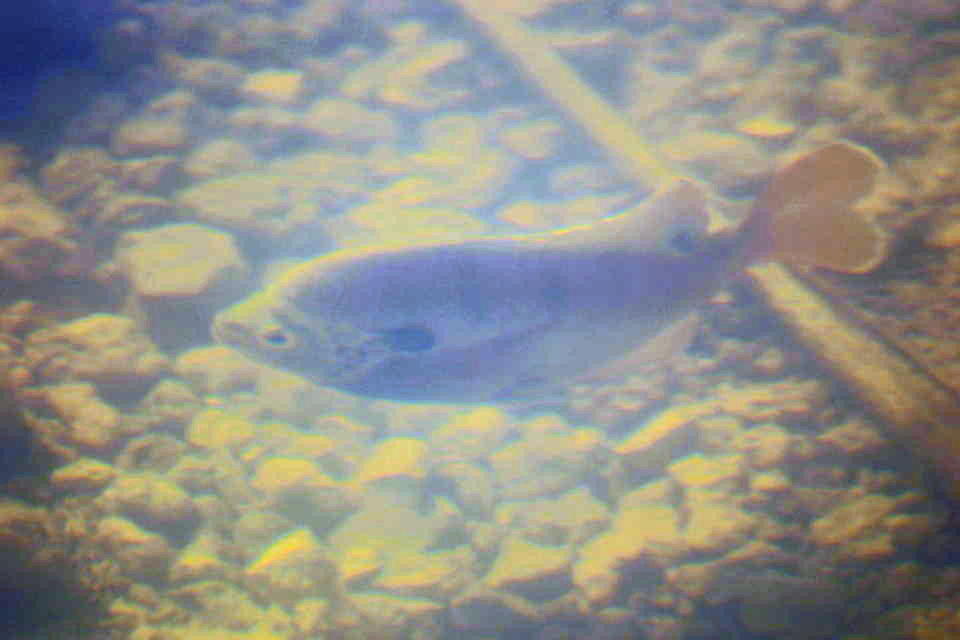
The rains have already brought our lake levels up to normal and sunfish are tending their circular nests along the shore. This one’s dark gill extensions and the black spot at the base of its dorsal fin tentatively identify it as a Bluegill.
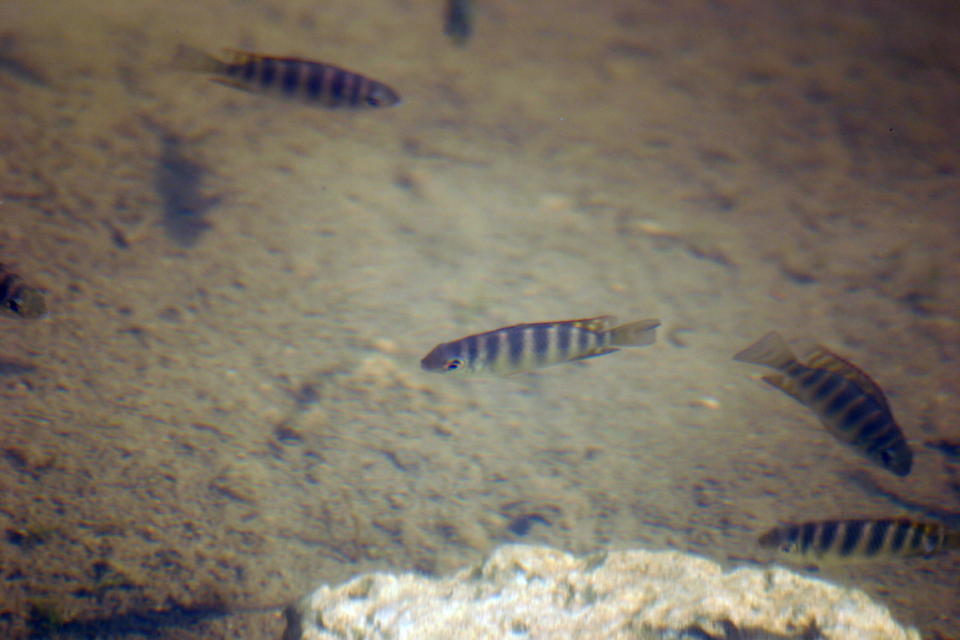
The water is unusually clear, and large schools of 2 to 3 inch fish with 7-8 vertical body stripes are swimming all along the shore. Not sure of the species, but they may be young exotic Spotted Tilapia– I welcome others to help me identify them. Whatever their species, these fish are now attracting good numbers of herons.
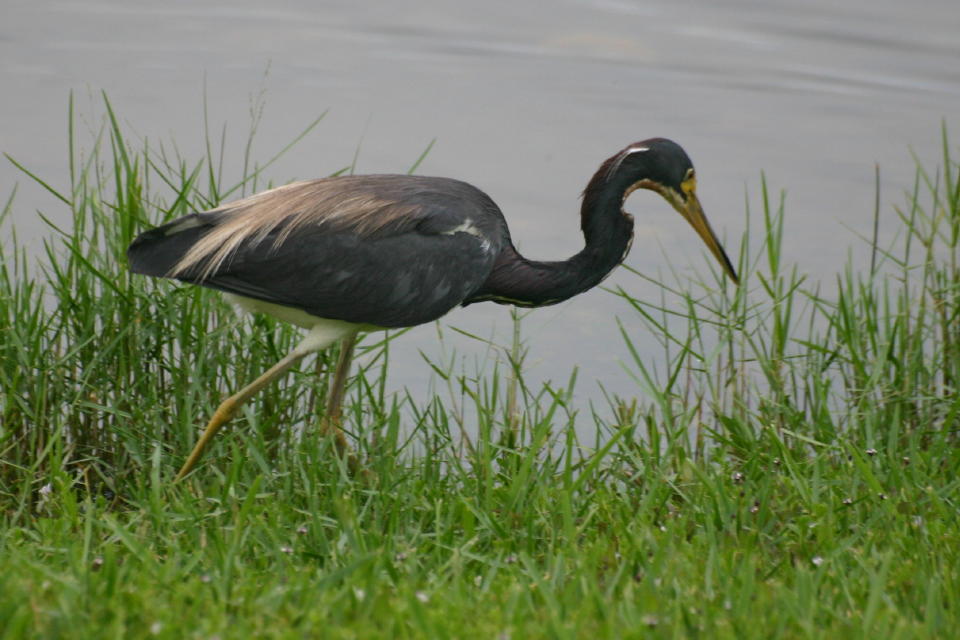
Given such an abundance of food, this Tricolored Heron dashes back and
forth, seemingly unable to settle on any one feeding place at the water’s edge.
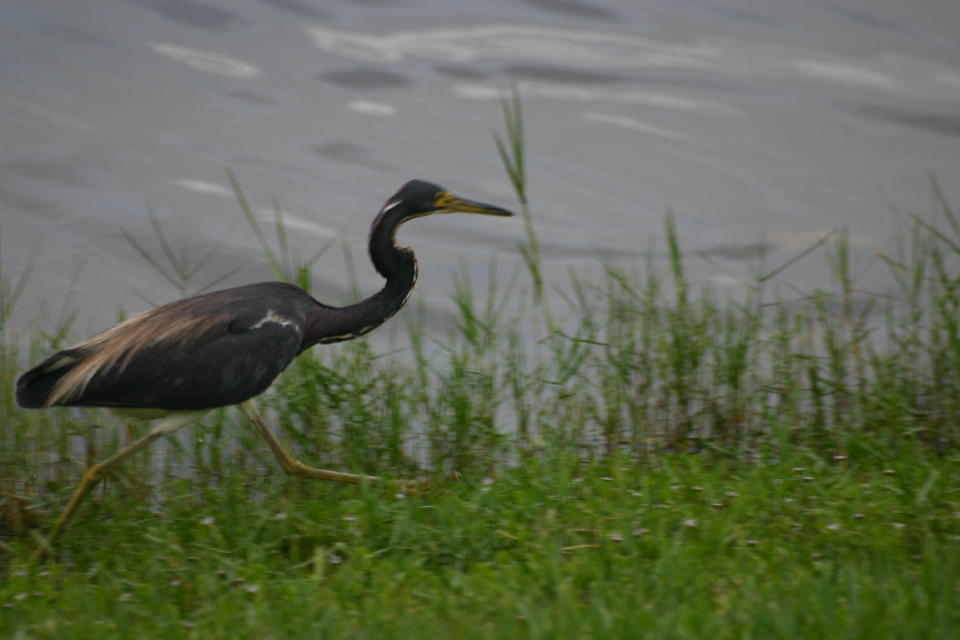
Here, it responds to the disturbance created by a large Grass Carp foraging along the shore.
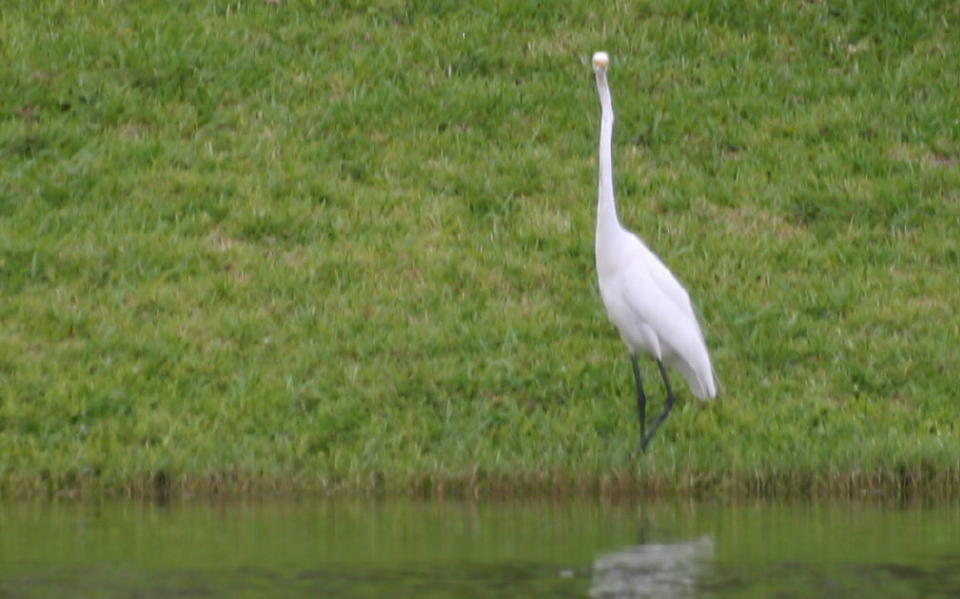
A wary Great Egret denied me any closeups, so I settled for this view of him at about 100 yards.
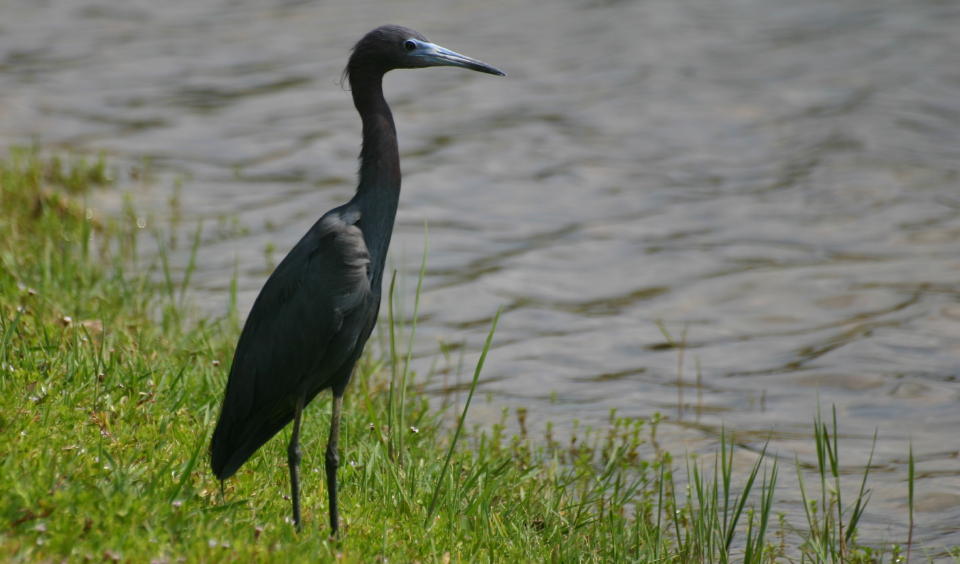
This Little Blue Heron was more cooperative.
Early this March, a group of four Black Vultures congregated on our next door neighbor’s lawn, at the shore of our lake. They were tearing apart the dead body of a Muscovy Duck. Later in the day I took a look at the carcass, now little more than a bunch af feathers and cleanly picked bones. I did not think much of it until a few days later, when I noticed that tough old “Pato El Presidente,” the alpha drake who ruled our section of the lake’s shore, was missing. See previous blog entry about him here.
During the next couple of weeks there were many skirmishes between rival drakes, with two particular ones, a pure white specimen whom I named Whitey, and Whitewing (pictured, previously an incessant rival of El Presidente), appearing to have the upper hand. Discord among the ducks continued well into April. Whitey appeared to emerge as the new boss of our piece of the lake. Previously, Whitey’s territory centered on a home diagonally across from us, where the owner regularly fed the ducks and pigeons. This must be the most prized territory on the lake, so perhaps Whitey was displaced to a lower position in the Muscovy heirarchy.
This spring, the third we have spent here in South Florida, we have so far seen no Muscovy Duck chicks on our 10 acre lake. Usually, by now there would be between 3-10 broods in various stages of growth. During March and April I found four nests on ours and neighboring properties with eggs that failed to hatch. One nest just off our patio contained 14 eggs and the hen incubated them for well over a month before abandoning them, all intact.Could this be due to the instability of the social order that was caused by the loss of El Presidente?
I wonder whether this is unique to our lake, or has anyone else noticed it? Could the nesting failure be related to the record drought conditions that have brought our lake level down by almost three feet? With the low rainfall, is it possible that the pesticides from residential lawns, or the herbicides that the South Broward Drainage District regularly sprays along the lake margin, might have become more concentrated and thus have an unexpected anti-fertility effect?
Are other local species experiencing similar problems? True, I am not concerned about the Muscovy population, but want to be reassured that this is not an indicator of any larger problem. After all, the web of life encompasses all of us.
The most common resident bird species on our lake is the feral Muscovy Duck. Populations seem to be self-sustaining, but the birds proliferate in locations where humans provide supplemental feeding. There is a small lakeside park a few doors down from us, and families often visit with their children to feed stale bread to the ducks. Several neighbors also feed them quite regularly. We avoid giving them anything, with one exception—when our granddaughters visit. They get such a kick out of handing out bread crusts and seeing them fly in to compete for morsels! We usually pay for our kindness by having the messy ducks lounge on our patio for the next several days and even peck at our back door.
There are probably 50 to 60 Muscovies on our 10 acre lake. There is a distinct pecking order, and at the top of the hierarchy are several older and very large drakes. They defend distinct strips of shoreline, with each Alpha drake controlling about 600 to 800 feet of the lake’s margin and lording over a loose group of much smaller females and younger or lesser males. Our 150 feet of lakeshore are right in the middle of one tough old black drake’s territory. We call him “Pato El Presidente,” pictured above
As is the case with the other Alpha males, El Presidente sports very extensive red bare parts on his face and even has short caruncles, similar to the wattles of a Tom Turkey. In recent weeks, one of the younger males in El Presidente’s flock has become very bold. We call him “Whitewing,” as he has distinctive large white patches on his wings. Whitewing is big– maybe over 20 pounds, and appears even larger than El Presidente. When El Presidente pursues one of the hens, Whitewing is often right behind him, trying to get ahead. El Presidente usually just cuts the younger bird off and sometimes chases him away. Territorial disputes between the drakes are commonly settled with threats consisting of hissing, head bobbing and tail wagging. If a neighboring czar trespasses on another’s established territory, the interloper usually retreats promptly, albeit reluctantly and with dignity.
Around dawn, before the land starts heating up to create the dominant sea breeze, the lake surface is often as smooth as glass. Those were the conditions this morning as I was preparing breakfast, when something caused ripples and waves to radiate out from a point near the shore to the south of our property. I saw that the cause of the disturbance was a fight that had broken out between two of the drakes. The struggle was vicious and prolonged. In the gathering light I recognized El Presidente. He was getting the best of Whitewing, battering him with his wings and grasping him by the neck—even appearing to hold his rival’s head under the water.
Later, I saw Whitewing, standing off from the other ducks. He was missing feathers on the back of his neck. El Presidente still rules! (See subsequent post about the death of El Presidente)





